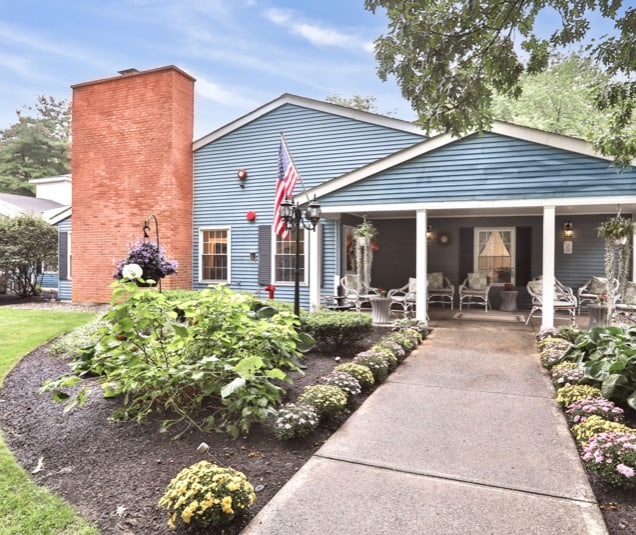Navigating the world of care options for a loved one can be a challenging task. For many families, the decision to transition a loved one to an assisted living or memory care community is often fraught with emotion and uncertainty because of a lack of information.
Understanding the differences between these communities and their many supportive features can provide clarity and confidence in the decision-making process.
Assisted living offers support for daily activities to older adults who can still live relatively independent lives. Memory care is a specialized form of senior care that provides support specifically for those living with Alzheimer’s disease or other forms of dementia.
Introduction to Senior Care
As the population ages, there’s an increase in demand for care services. The demand for care services is usually driven by various factors, including longer life expectancy, changing family structures, and the increasing complexity of healthcare needs as people age.
As a result, an industry once characterized by a one-size-fits-all approach has transformed. Various care options such as assisted living and memory care are now available, designed to meet older adults’ diverse needs and preferences.
What Is Assisted Living & Memory Care?
Assisted living and memory care communities are both residential care settings, but they cater to different types of residents. Assisted living is ideal for individuals who need some help with daily activities but can still live relatively independent lives.
Assisted Living
Assisted living communities can offer the following:
- Safe, supportive, and fun environments
- Spacious, ground-level floor plans
- Common areas, including living room and activity centers
- Restaurant-style dining rooms
- Guest meals upon request
- On-site beauty spa
- Ice cream and soda shop
- Expansive grounds and secure courtyards
- 24-hour emergency call systems
Memory Care
Memory care, on the other hand, provides specialized support for those living with Alzheimer’s disease or other forms of dementia. Services and amenities in memory care can include:
- Apartments with private bathrooms
- 24-hour care by specialty-trained staff
- Housekeeping
- Specialized activities
- Meal service and nutritional support
- Common areas and secure grounds
- 24-hour emergency call systems
- Medication administration and monitoring
Key Differences Between Assisted Living & Memory Care
While assisted living and memory care provide supportive services, they differ in terms of scope and level of care.
Intentional Design
Compared to assisted living, memory care communities are designed to support individuals living with memory issues.
Specialized Care
In assisted living, you can enjoy as much independence as possible while knowing that care is available if required. Memory care communities have trained staff knowledgeable in caring for individuals with cognitive impairment. They can provide specialized support, including memory-enhancing activities and sensory stimulation programs.
Emphasis on Safety
Due to the cognitive impairments of residents, safety is a top priority in memory care communities. The environment’s design helps prevent disorientation, and trained staff can handle challenging behaviors that may arise.
Staff-to-Resident Ratio
Residents in assisted living communities receive support as needed and live independently. Memory care communities typically have a higher staff-to-resident ratio than assisted living, so residents receive personalized attention and care.
Medication Management
Memory care residents often require more medication management assistance due to memory issues. Because of this, memory care communities have systems in place to monitor that medications are taken correctly and on time.

Choosing the Right Option
When considering assisted living or memory care for a loved one, it’s essential to assess their specific needs and match them with the appropriate level of care. Some factors for family members to consider can include the following:
- Care needs: A health professional can evaluate your loved one’s health and daily living needs to determine the level of care to meet their requirements.
- Budget: Assisted living and memory care communities have different pricing structures, so it’s crucial to consider your budget to make an informed decision.
- Location: Consider the location of the assisted living or memory care community and its proximity to family and friends. Being close to loved ones can provide a sense of familiarity and comfort.
- Community culture: Each community has a unique culture, which must be the right fit for your loved one. Consider social activities, rehabilitation services, dining options, and resident demographics.
Quality Care & Support for Loved Ones
Assisted living and memory care are two distinct but vital types of senior care that provide tailored support to older adults. Understanding the key differences between the two can help you make an informed decision that meets your loved one’s needs and preferences.
Since each individual is unique, finding the right fit for your loved one requires careful consideration and research. With the right information and support, you can make a decision that will bring peace of mind and enhance the quality of life for your loved one.
Contact Peregrine Senior Living at Crossgate to learn more about our community and everything it offers.











